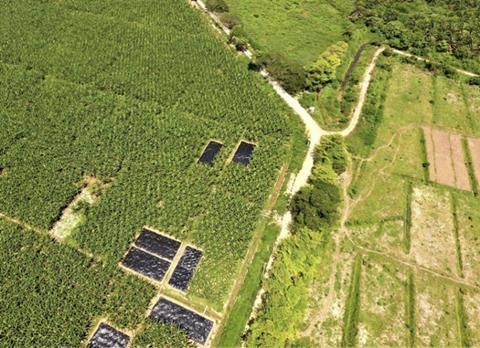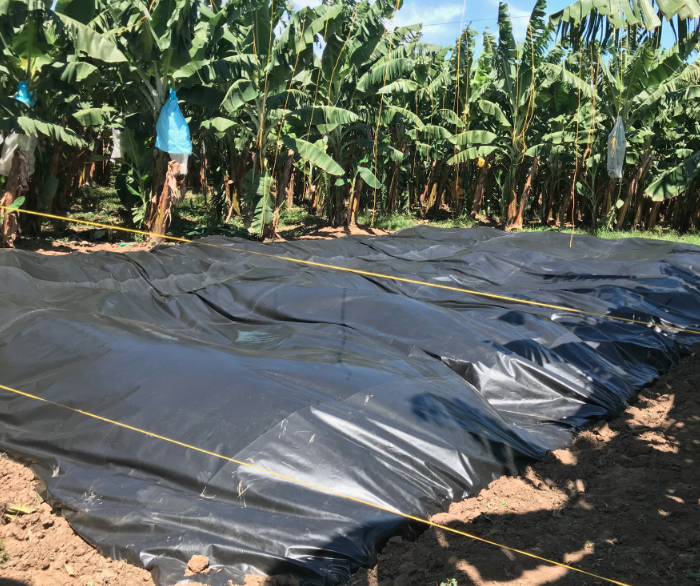
The Colombian authorities have finally confirmed what many in the international banana business have suspected since early July: the first suspected instance of Panama disease caused by the soil-borne fungus Tropical race 4 (TR4) has been found in Latin America.
According to a series of tweets published by the Colombian Agricultural Institute (ICA), 75ha of banana plantation have been eradicated since the organisation became aware of two suspected cases of TR4 in the northern region of La Guajira.
'The goal is to end the week with 152ha eradicated where Fusarium-compatible symptoms have occurred,' it added, 'This measure has been implemented in accordance with international protocols.'
In the meantime, biosecurity measures for farm workers have been strengthened in production areas, it noted.
ICA has also been using drones to monitor banana and plantain crops in the affected areas in order to identify potentially affected plants.
While the Colombian government's public pronouncements on the suspected outbreak have been minimal, ICA has been notably active in communicating best practice and methods of prevention to the country's banana industry.

In production areas, it has erected huge information billboards to tell growers, workers and travellers about the risks involved and how to prevent the spread of TR4 and Panama disease.
Similar information panels, written in both Spanish and English, have been placed in the country's airports.
It has also held workshops designed to help prevent TR4 in Urabá Antioquia, part of the Colombian Department of Antioquia, and in banana-producing areas near to the Atlantic coast.
'Nearly 1,000 people have taken part in these conferences,' ICA commented, 'including farm workers, producers and National Training Service students.'
ICA has been at pains to underline the fact that TR4 only affects the roots and stem of banana-producing plants. 'The fruits are not carriers of the fungus and therefore there is no risk in the consumption of this fruit,' it said.



